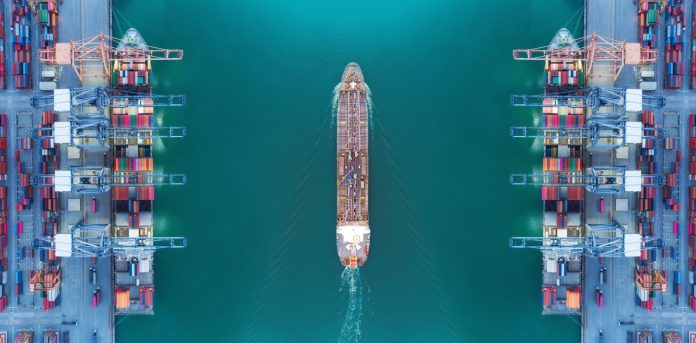Container ships are piling up in front of the ports, prices for freight containers are exploding, and there are problems in supply chains around the world.

By Pollen Consulting Group Partner Dr Stephan Mang.
The reasons and consequences of the container crisis are diverse. Below are some snap shots from different trading regions in the world and the domino effect this has on world trade.
The situation in China
The Futian container terminal near the southern Chinese metropolis of Shenzhen is one of the largest cargo ports in the world. If things stall here, the entire world trade suffers. This is what happened around two months ago – due to some Covid cases in Futian, the dock workers had to stay at home. For weeks, only less than half as many freight containers could be managed as usual.
The result was a congestion for dozens of giant container ships along the southern Chinese coast. Important components, machines and raw materials could not be delivered to China. Conversely, export products could not get out of China – computers, smartphones, bicycles and coffee machines, for example. In the meantime, operations in Shenzhen/Futian are up and running again, however there is still a backlog.
Regardless of the Covid-related port closure in southern China, there is an unprecedented shortage of containers in the People’s Republic. Freight prices have increased roughly tenfold affecting medium-sized companies in particular.
In some cases, shipping goods in a container to Europe now costs more than the freight that is in the container. Sending goods to China has also become incredibly expensive.
There is no improvement in sight, at least in the short term, on the contrary. It is likely that the container crisis will continue into next year.
The situation in the USA
Container jams are also the norm in Los Angeles. Cargo ships still have to anchor in front of the port for days before they can be loaded and unloaded. Americans are so eager to order, above all, clothing, electronics, Halloween items, household appliances and furniture are transported to Los Angeles. Goods that leave the country are only found in every fifth container.
The port in Los Angeles reports record numbers. Never before have so many containers been handled in a June, never before have more than a million been handled in a month, as in May. However, that volume of containers causes a congestion, and ships currently have to wait around five days in front of the port before they can unload their cargo. There are also not sufficient trucks to quickly transport the containers further into the US.
Due to the worldwide container scarce, transport costs have exploded. Many goods for the USA are originally from Asia. The price for a container on the Asia-USA route is now more than three times as high as it was at the beginning of 2020. This is particularly problematic for small and medium-size traders, who pay significantly more for the transport and have to wait even longer for their goods.
The situation in Singapore
The port of Singapore is recovering. In the first five months of this year, more freight was handled than in the same period of 2019 and 2020. However, port closings, delays of ships and congestion in the ports have left their mark on Singapore.
According to the port operator, the port is partially overloaded because cargo does not arrive on schedule. For the large container ships, the waiting time is five to seven days, usually it is two days.
Singapore wants to solve the delays with innovation and digitization, with better tracking of containers, for example, the supply chains could then react and be optimised in the event of delays or other adverse events.
 About Dr Stephan Mang
About Dr Stephan Mang
Equipped with over 20 years of global industrial and consultancy experience in FMCG, Pharmaceuticals and Chemical organisations, Stephan is an outcome-focused leader with vast experience in operations as well as a certified leadership and business coach.
About Pollen Consulting Group
Pollen is the consultants of choice for leaders with an eye on their operations.
Established in 2016, Pollen is ‘a management consultancy with a difference’ driving bottom-line performance through end-to-end supply chain transformation.
We partner with retailers, suppliers and producers delivering engagements that cover every element of a COOs remit.


